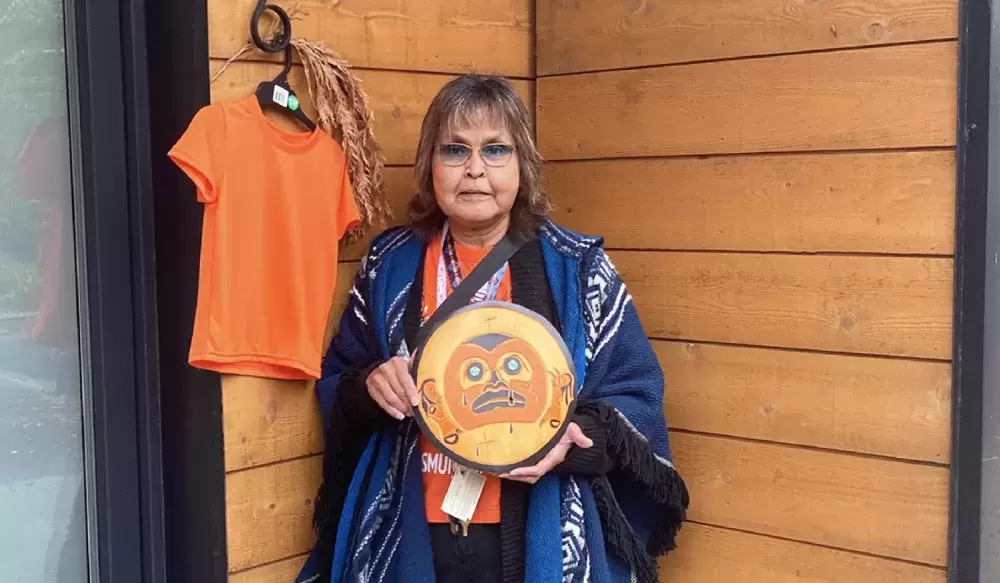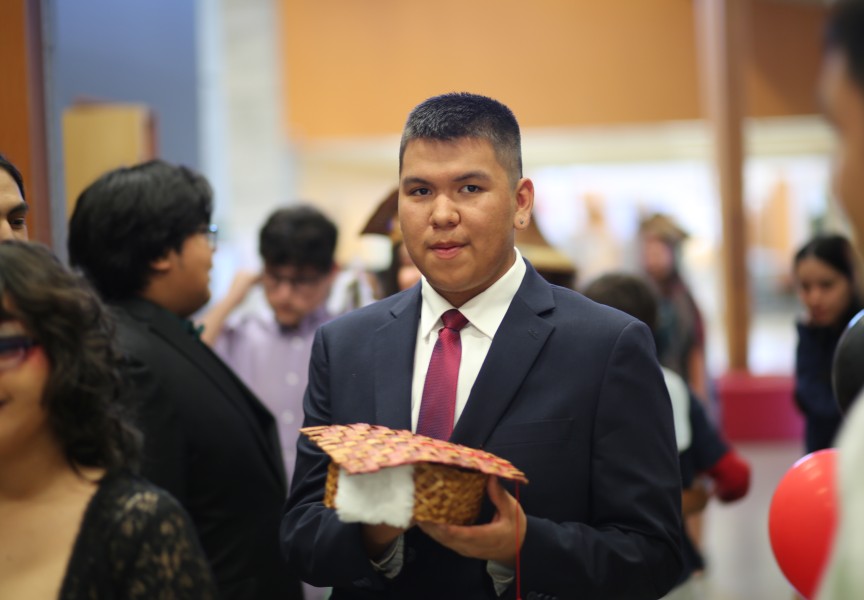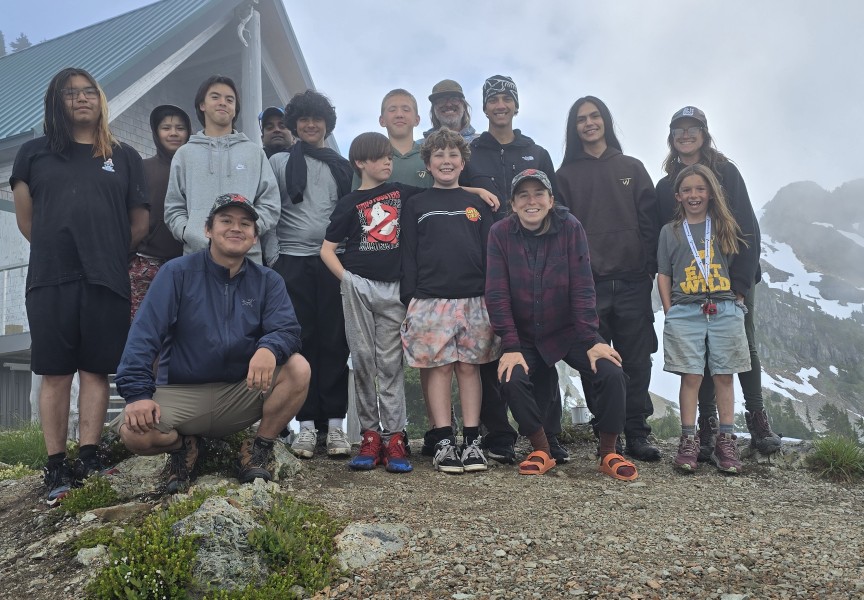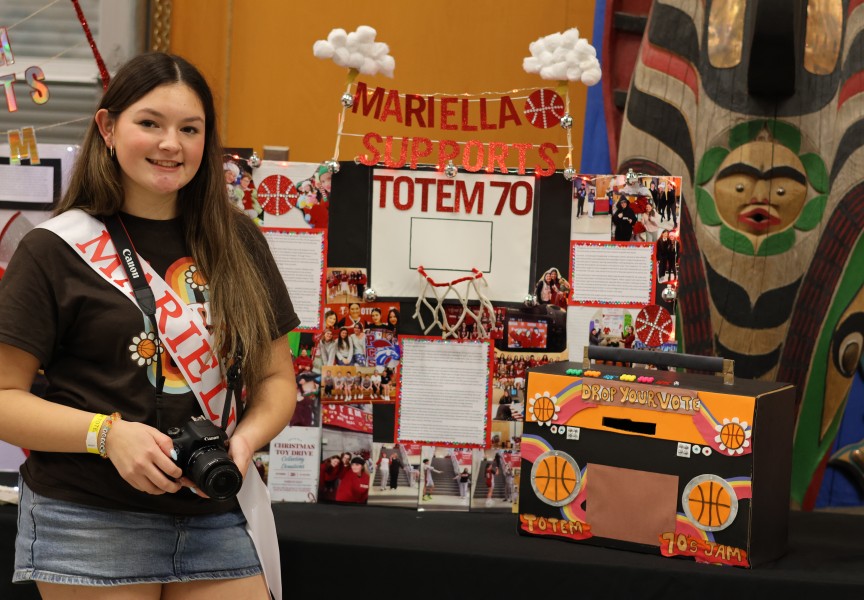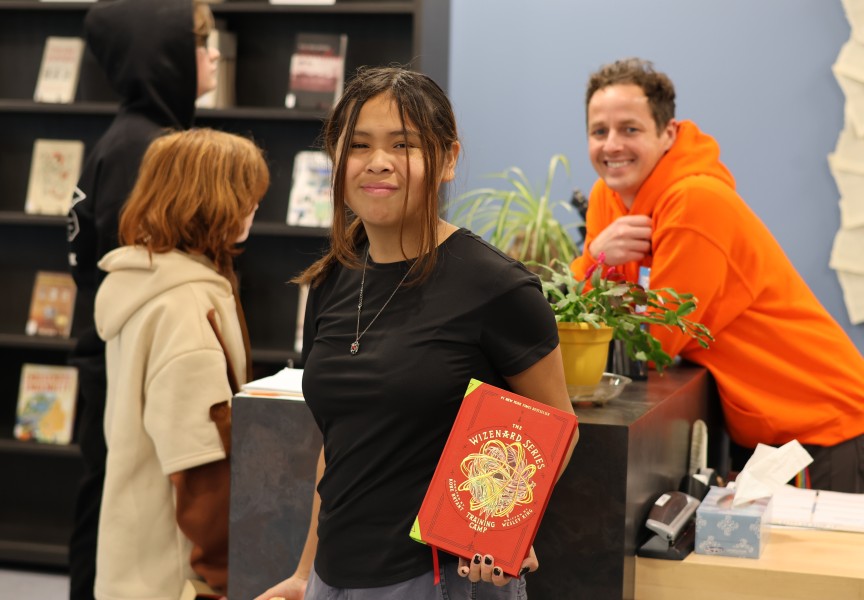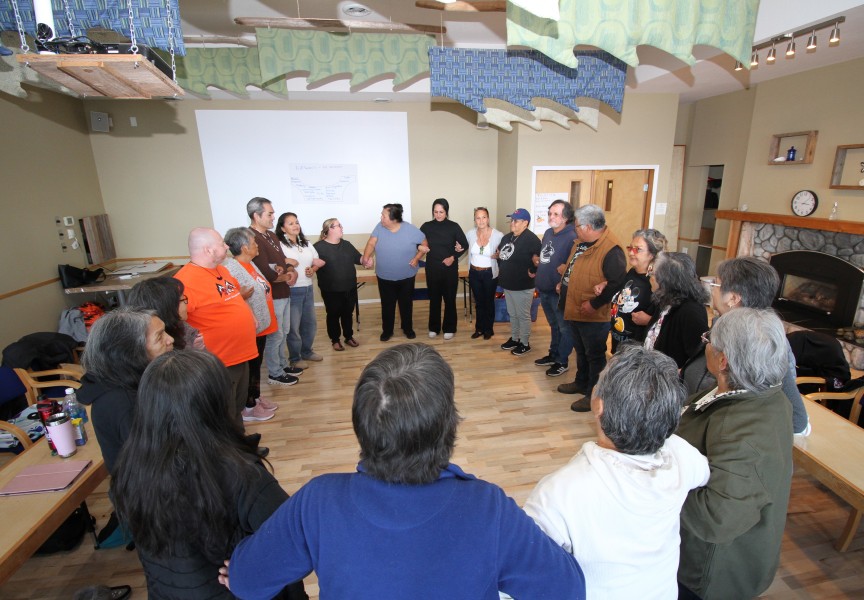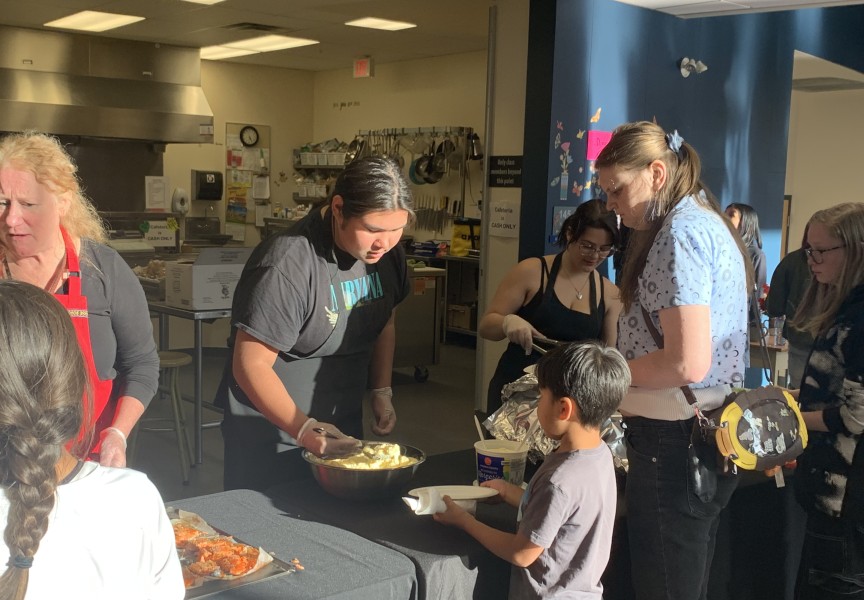Vancouver Island University (VIU) has launched a new program for Indigenous elders, for residential and day school students, as well as 60s scoop survivors who want to learn basic language skills such as reading and writing.
The new program, called the Literacy Circle, began Oct. 18 at the Nanaimo Campus. It’s a seven-week, self-paced course that offers students individualized education based on what they want to learn.
The program came about after Coast Salish Elder Linda Jack gathered friends and community groups to help her in a quest to learn how to read. The First Elders Training, Healing, Education, and Respect Society (FETHERS) was formed and the need was identified for a program that could meet unique educational needs. The group then approached VIU requesting such a program.
Jack’s dad was a residential school survivor and she herself is a survivor of a day school – an experience that has left her without a proper education.
“I’ve been trying to fight for education for quite a while. My parents didn’t have good education,” Jack said. “There’s a lot of elders and they’re going through the same thing and that comes from day school. There’s really a lot of people who don’t have a lot of education.”
Jack said she’s been “living off memory” when it comes to getting by without knowing how to read or spell. For example, instead of reading street signs when she’s trying to get to a destination, she needs to remember buildings or other landmarks along the way.
Through the Literacy Circle, Jack’s goals are to obtain her Grade 12 diploma and driver’s license.
Jack experienced sexual and physical abuse during her time at day school and was torn from receiving even basic education. Eventually Jack made it to high school, but didn’t have any skills or education to allow her to be successful. She said teachers didn’t care and that she’s endured a lifetime of painful experiences stemming from not being taught to read or spell.
“My dad was getting abused and sexually abused (at residential school), he didn’t know how to show love and it carried on to us, it goes on to the next generation and the next generation,” Jack said. “Then when I went to day school everything was happening there as well. It was like a nightmare being a child growing up. I came to be a bad alcoholic and I had to start learning how to get some counselling, but I finally made it through all these years.”
Once Jack quit drinking, she began fighting for education. She continues to fight for the people that are no longer here and for the elders who still are. She said there’s even an 85-year-old elder enrolled in the Literacy Circle.
“It was hard for me to walk around telling people I didn’t know how to read…but I got stronger and stronger each time and then I wasn’t afraid,” Jack said. “You won’t believe the amount of elders who don’t know how to read or spell. It’s really painful to hear all their stories. I’m really happy that they’re all coming forward now.”
Dr. Jean Maltesen, dean of academic and career preparation at VIU, said that despite elders’ horrible experiences with the education system, they want to be educated.
“They want to be able to read to their grandchildren, read recipes, drive a car, fill out forms and participate in other activities that require reading, writing or arithmetic,” she said in a press release. “I was compelled to do something after witnessing the courage of this group of learners who want to return to education after what they’ve been through. We need to support all learners and even though this group have had horrific experiences with education, they still understand how important it is and are still willing to work through their trauma by trying again and participating in this learning opportunity.”
An Indigenous instructor who has worked within Maltesen’s faculty for a number of years has been hired to teach the tuition-free program. Classes will be capped at 16 students and tutors are also being brought in to further assist the students.
While literacy programs are offered through VIU’s Adult Basic Education Program (ABE), Maltesen said those who have expressed interest in the new program “don’t really see themselves fitting into that model, particularly because there are specific outcomes we must meet, according to provincially articulated courses. These learners want to have some input into what they are learning and we can help with that.”
Although the first seven-week course has already begun, Jack and others are hoping it will be successful and allow for the program to continue running, and even expand across the country.

